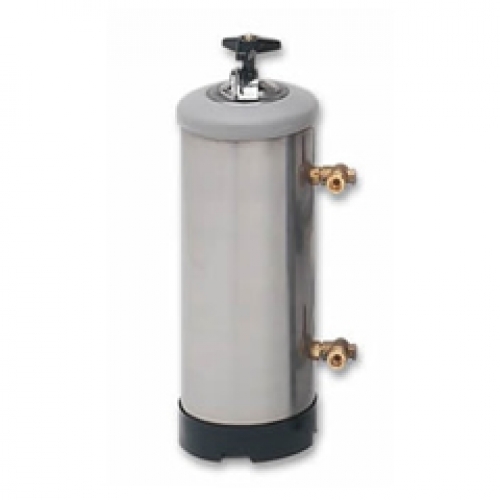3 min read
136 Views
Editorial Staff
Water Softeners: How to Solve Hard Water Problems
Hard water is a result of dissolved minerals such as magnesium carbonate, calcium, and manganese, which affect water molecules and [...]
H
ard water is a result of dissolved minerals such as magnesium carbonate, calcium, and manganese, which affect water molecules and their ability to lather with detergents. Millions of families in the UK have problems with hard water, according to a number of research studies. Besides, not only in the UK is hard water a problem. In America as well, 85% of homes have problems with hard water, as revealed by a research study by the United States Geological Survey.
Whether water is hard or soft is determined by the amount of dissolved minerals in a particular sample. This is usually parts per million of the mentioned minerals, which can be magnesium carbonate, manganese, and calcium. Water testing kits are available in stores both online and offline, which you can purchase to test your sample before you invest in a softener.
For that reason, it is important for households to get reliable information about hard water. That can help them learn about the steps they can take to arrest the effects by employing appropriate solutions. While many people already know about water softeners, there is need to help them choose the right machine to solve their needs. They also need to understand the differences about the machines, such dual tank, and salt-free water softeners.
Hard water is mainly a problem of expense rather than health. While people can use hard water without potential health effects, the problems of hard water become more visible when a plumbing system or water-using appliance develops a problem. Many users do not recognize the effects of hard water until they happen.
For instance, when heated, the minerals in hard water produce scales and crystals. These eventually clog plumbing systems and lower their efficiency. Besides, the heated minerals cake on the surfaces of water heaters and affect their performance. This problem may even cause the water heating devices to fail completely. In connection to this problem, research has revealed that water heaters become less efficient by 22-30% when using hard water.
Hard water problems are more common in cooking, bathing, and laundry activities. Due to the formation of scales and crystals by dissolved minerals, hard water affects the overall quality of food when used in cooking. In the bathroom, using hard water leads to use of more soap, which eventually becomes difficult to rinse off. The same problem is common when doing laundry using hard water. You are likely to spend more time and use more detergent due to the effect of dissolved minerals.
It is for these reasons that water softeners are available to save millions of families from expensive effects of hard water.






